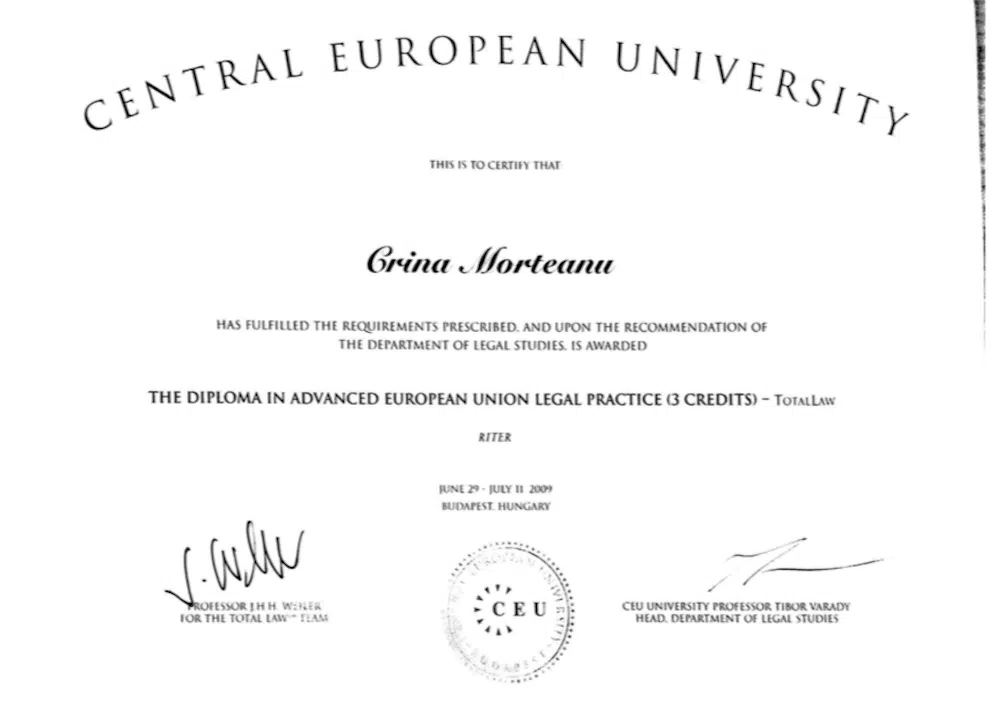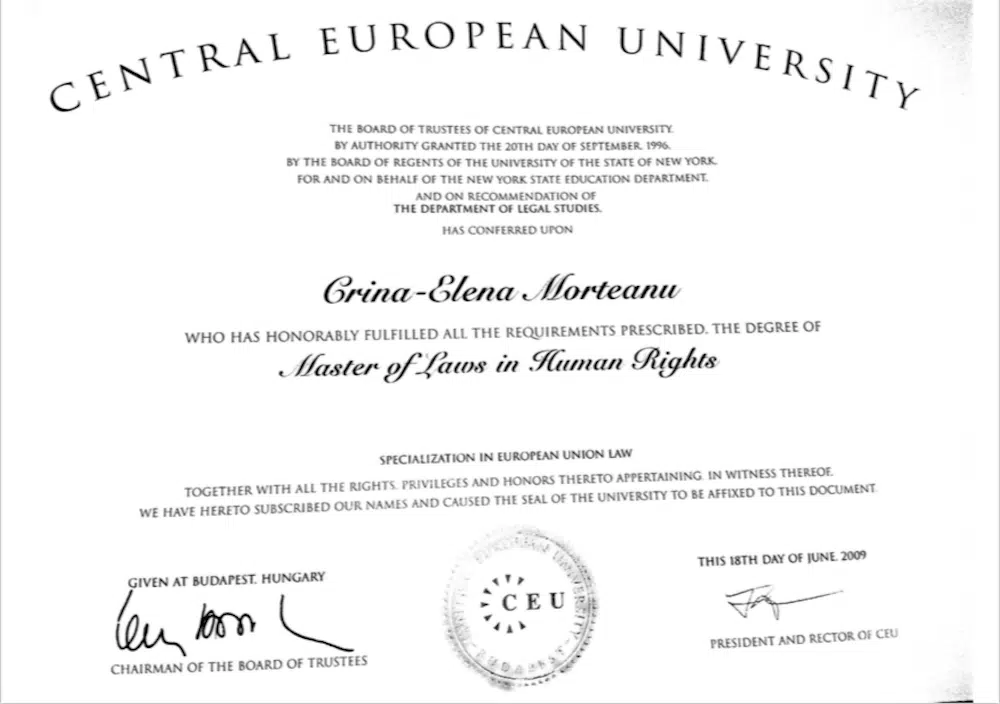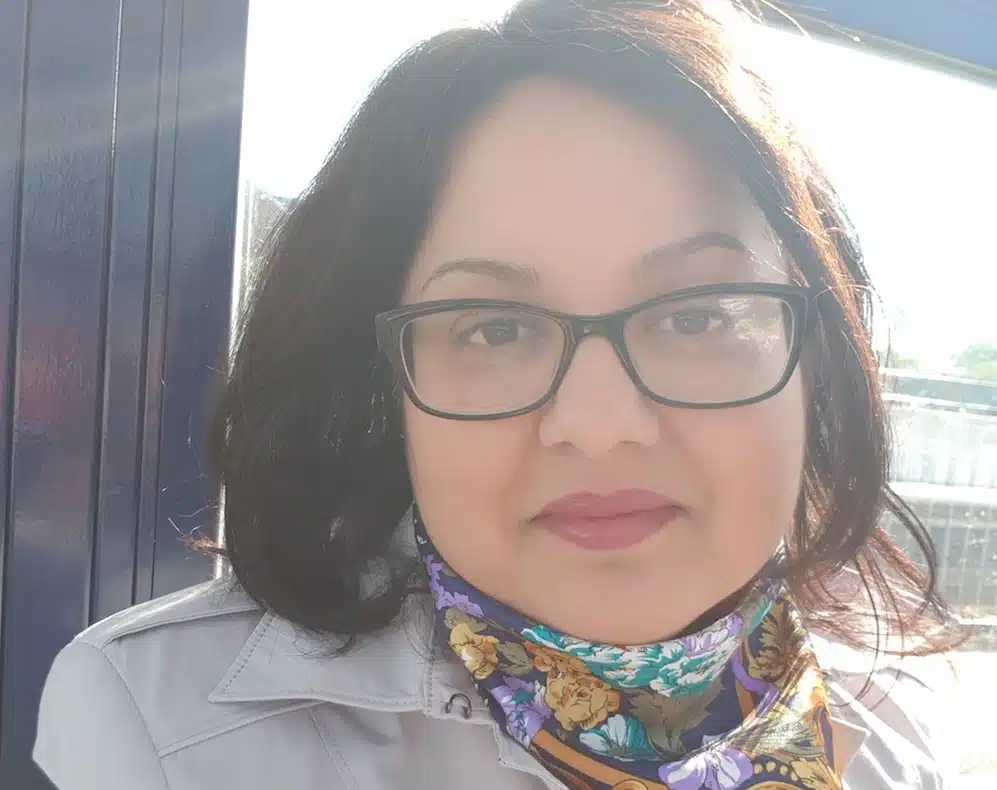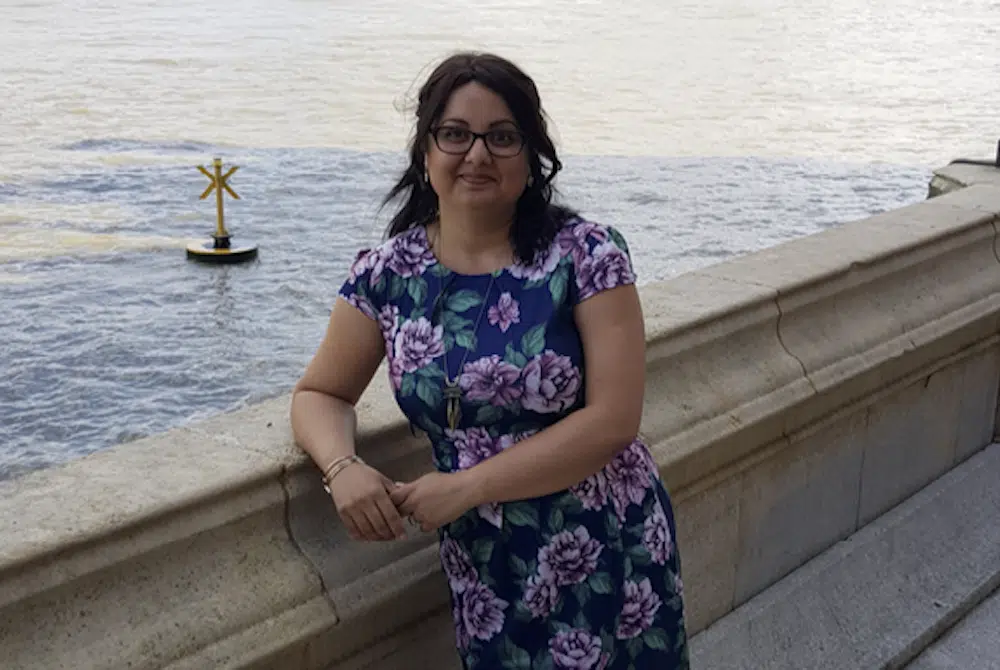‘As a Roma child at school, it was hard to cope with the stigma I faced on a daily basis’
Posted by Katherine Maxwell-Rose on April 8, 2021Crina Morteaunu worked in a high-level job within the Romanian government but a change of power made her position untenable. Since moving to the UK she has embarked on a PhD, started a family and now works as Manager at the Luton Roma Trust.
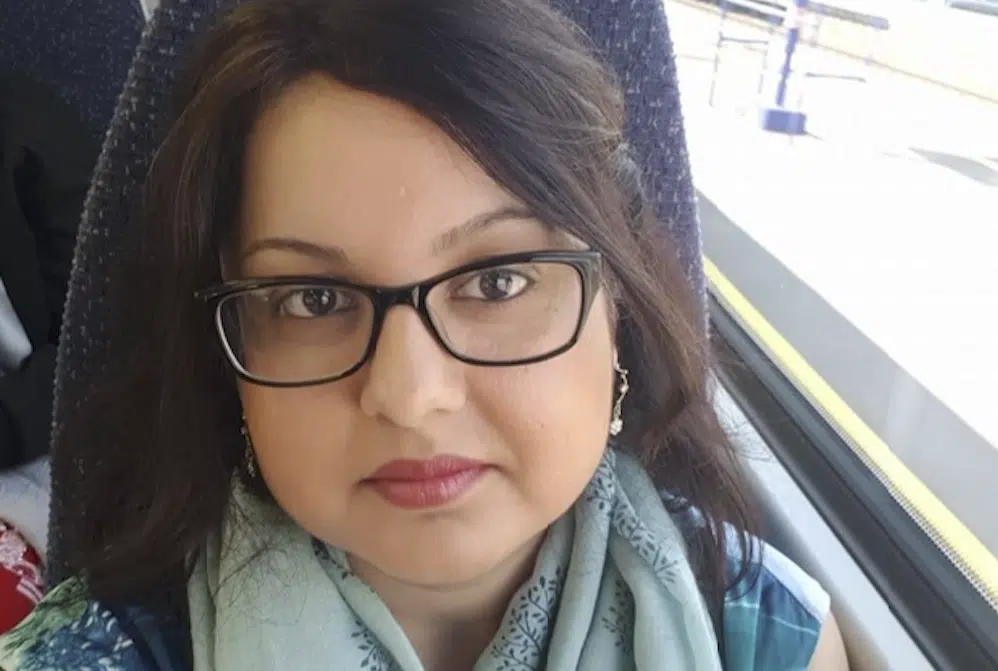
The treasured objects that I brought with me from Romania to the UK are my diplomas. They are actually useless here as they are not recognised by the UK education system. Nonetheless, they are precious to me because they speak about who I am. I’ve worked so hard to get them. It wasn’t easy for me to go to school, let alone get my diplomas. My parents live simple lives; my father was an electrician and my mother was a housewife, we lived in a village and barely managed to survive and go to primary school. The fact that me and all my siblings are highly educated is a dream I never could have imagined possible.
At school I had to work twice as hard as a non-Roma child to get the grades I deserved. Sometimes, even if I answered all the questions correctly I would still get a lower grade. I wanted to study law so I could defend my family and my community. Before starting my law degree a fellow student asked me, ‘Are you really Roma?’ I didn’t know what to say, she couldn’t believe a Roma was in law school. All the negative experiences only motivated me to work harder and to prove to people that we are equal.
Whenever I get the opportunity I speak out about human rights and discrimination against Romas. There are a lack of systems in place to protect my people. Roma people still suffer a lot. People don’t get jobs just because they are Roma. Schools are segregated. My parents always said the most important thing was to study hard. Financially speaking this was almost impossible. When I was studying, in order to pay rent, I would buy clothes from the Chinese market in Bucharest, travelling 300km to pick up the clothes then selling them to students at my university, going door-to-door in dorms. That’s how I was able to finish university. My parents couldn’t work anymore, so I supported myself. Studying is the most important thing in life. That’s how you don’t feel discrimination. As a Roma, especially as a child at school, it was hard to cope with the stigma I faced on a daily basis.
For eight years I lived in Budapest, Hungary, where I studied my Masters and then worked in several Human Rights NGOs, focusing on the rights of Romas. After eight years out of Romania I wanted to go back and make some changes, focus on my personal life and start a family. I took a break for a few months, then was offered the role as Advisor to the Minister of Justice on Human Rights and I couldn’t say no.
The government I was part of was apolitical; the President of Romania assembled it according to expertise not political affiliation. For one year, a team of skilful experts attempted to reorganise a few things in the country. This idea came about due to a number of systemic problems that still exist in Romania. This was an amazing year for me and a huge opportunity. Among other things I worked on probationary services offering human rights expertise. After one year of this, a new party came into power and disassembled the whole system. There was no place for me anymore.
I felt incredibly frustrated as I’d invested so much. Having worked within the government at that level made it impossible for me to stay and accept the system. When the contract came to its end, I couldn’t cope with the system at that time and needed to leave. I arrived in the UK in 2017. I chose to come because I can speak English, and it’s one of my favourite countries due to the educational system. I applied to do my PhD at Birbeck, University of London, in Law. The thing that kept me going on my journey to the UK was my motivation to do my PhD. That and the fact I met my husband in the UK; he is also a migrant.
When I arrived I thought it would be much easier to find a job than it was. I have so much work experience, I speak English, I got myself a National Insurance number, a bank account, I had savings to get me through. It took me a while to realise that all the jobs I was applying for were rejecting me. The UK didn’t recognise any of my work experience. Finally, a job at the Luton Roma Trust came up. I was successful and started as Project Manager in 2018. Now I am the Manager. Many things happened in that year: I began my PhD, started my job, and a few months into my marriage, I fell pregnant.
I’m really enjoying my time in the UK. I like the system, the education opportunities, the people. Everyone is professional and happy to help. I see myself living here forever, buying a house and really contributing to society. I feel at home. Whenever I go to my parents house in Romania, I want to come home to the UK. I’m happy here, and in Romania I couldn’t offer anything to my son. Here he can benefit, he can speak English like a native, he can access opportunities. In two years we will be citizens.
To other people about to embark on the same journey as me, I would tell them to make use of all the opportunities that they have here. Be grateful for the chance you have. To someone who has just arrived here, I would tell them to respect others and do their best to become active citizens of this country. Many people come here for the opportunities and don’t understand how important it is to give back. The UK offers a better life for everyone who couldn’t get a better life in their own countries. As long as we work hard and want to integrate, it’s wonderful.

